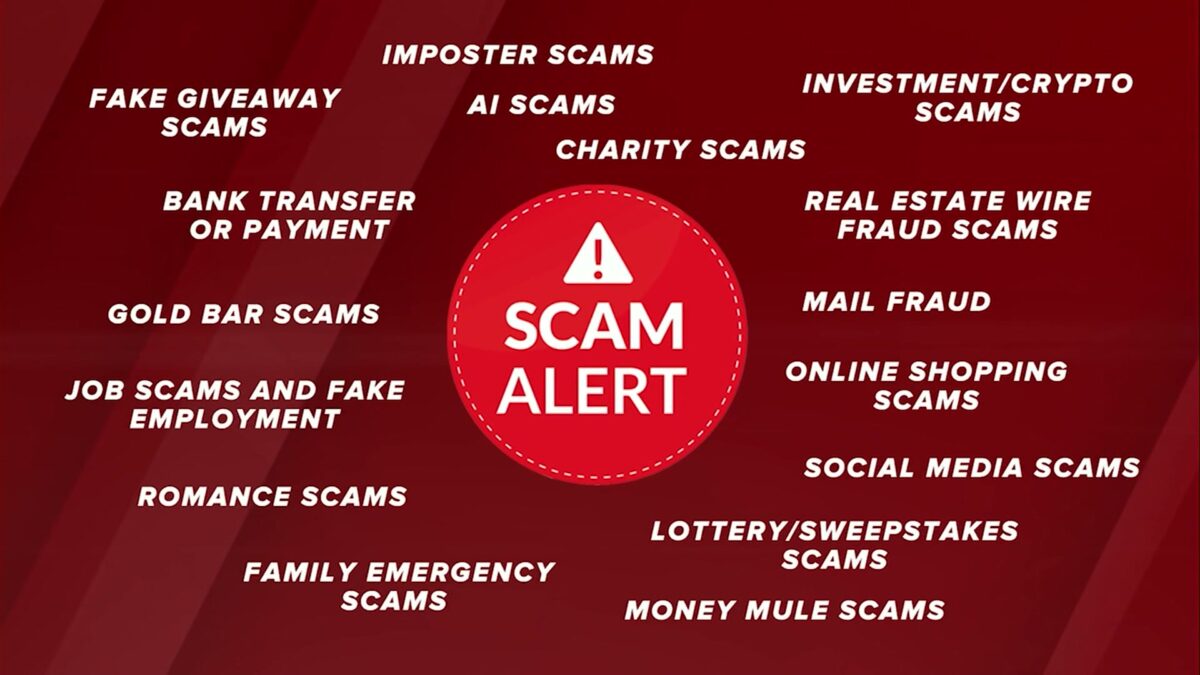Holiday and year-round scams hit Central Oregon hard—here’s how to stay safe

Tracee Tuesday
BEND, Ore. [KTVZ] — As the holidays approach, scammers ramp up their efforts to deceive consumers—and Central Oregonians are among the many targets. But scams are not just a seasonal problem; they affect people all year round with increasing sophistication and financial damage.
According to the Federal Trade Commission (FTC), roughly 2.6 million consumers reported being victims of scams in 2024, alongside more than 1.1 million reports of identity theft during the same time period. Experts warn that these figures only reflect reported cases, and the true number of victims is likely much higher as many scams go unreported.
Scams today range from fake delivery notifications and fraudulent phone calls impersonating government officials, to online shopping traps and business opportunity frauds. Sheila Miller, Communications Manager for the Bend Police Department, says, “Through November 24th, we’ve had 385 calls for service from people reporting that they’ve been scammed. We see a variety of scams. And one of the scary parts, I think, is that they’re constantly changing. So once we feel like we have a handle on one and we’ve told people about it, there’s some new iteration. Most scams are: ‘there’s a problem and we need you to solve it.’
Local businesses are not spared. Behroz ‘Bruce’ Aria, co-owner of Bruce & Nikki’s Parkway Deli, shared their experience: “We got a call from the sheriff’s department, telling us that there was stolen, cards being used at the gas station and inside the store. So to crack down on that and make sure that doesn’t happen again, we occasionally ask for a secondary ID, backed up with id with the card. And a lot of times when we ask for that second form of ID, the person says, I don’t have it, we decline the transaction.”
Financial institutions advise vigilance as a key defense. Michelle Loftsgard, Assistant Vice President at OnPoint Community Credit Union, points out, “One of the biggest red flags is pressure. If someone is pushing you to act right away or trying to make you feel worried or rushed, that is a sign to slow down and take a closer look. You should never share your password, PIN or secure access code with anyone. You should also be cautious with unexpected links, unusual grammar or sender information and calls from numbers you do not recognize. If anything feels unusual, stop and contact the company directly using a phone number you know is real.”
Loftsgard also advised, “We are seeing more impersonation scams right now, which is when a scammer pretends to be someone you know or a trusted organization. This can show up as phishing emails, fake texts or phone calls that sound urgent. We are also seeing scammers use newer tools like deepfake phishing to recreate a family member’s voice. The reality is that anyone can be targeted, but we often see youth, teens and senior citizens as the most vulnerable because scammers look for people who may be less familiar with the warning signs or who are more likely to respond quickly.”
Here are some additional tips from Loftsgard:
Watch for imposter scams. Your financial institution will never contact you unexpectedly for your password, PIN or sensitive personal information.
Think before clicking. Avoid unexpected links or attachments, even if the message looks real.
Use multi-factor authentication. Add Face ID, Touch ID or one-time codes for extra protection.
Switch to passphrases. Use long, memorable phrases that are harder to guess than traditional passwords.
Add extra safeguards. Create a safe word with family, turn on account alerts, keep software updated, and use your digital wallet for secure transactions.
If you suspect you’ve been scammed, act immediately. Report the incident to your bank to safeguard your accounts. You should also file complaints with the Federal Trade Commission, the FBI’s Internet Crime Complaint Center, the United States Postal Service (USPS), and the Federal Communications Commission (FCC).
Staying informed and cautious is the best way to protect yourself. Check out the FTC‘s website for more tips and resources on how to avoid scams.